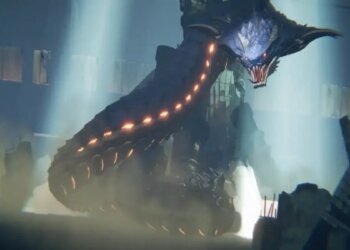Bethesda has long been celebrated for its storytelling prowess in the gaming world, and their renowned franchises, such as The Elder Scrolls and the more recent Starfield, showcase their mastery in crafting immersive narratives within the RPG genre. The Fallout series, too, is famous for its vivid depiction of a world surviving a nuclear apocalypse. Despite having only four mainline entries over almost three decades, Fallout has delivered several unforgettable quests. Fans remember the daring Veni, Vidi, Vici from New Vegas and the quirky Silver Shroud from Fallout 4. Yet, among these tales, Fallout 3’s The Replicated Man often goes unnoticed despite its thought-provoking moral questions.
Incorporating moral dilemmas has always been a key strategy in engrossing RPG experiences, and some of the best open-world games use this tool effectively to heighten drama. Take, for instance, Red Dead Redemption 2 and the Mass Effect trilogy, where every choice leads to a cascade of consequences, challenging players’ ethical bearings. Bethesda skillfully uses this narrative device throughout the Fallout series, but the intricate moral choices required in The Replicated Man highlight one of the studio’s most nuanced storytelling achievements.
Now, the quest, The Replicated Man, doesn’t serve as your typical walk in the park in Fallout 3. Many players hit a roadblock when trying to unravel this storyline. Players receive a task from Dr. Zimmer in Rivet City, where they’re tasked with locating an android on the loose by piecing together clues from a series of scattered holotapes. However, these hints aren’t the easiest to track down, and it’s quite common for players to choose an easier path, assisted by The Railroad’s Victoria Watts, and end the quest prematurely without uncovering any holotapes.
Delving into this mystery means interacting with various NPCs, creating what often feels like a wild goose chase without knowing where to turn. Occasionally, Victoria Watts fails to appear, eliminating the easy way out and adding unexpected layers to the tale. At other times, bugs can freeze the story’s progress. Assuming the game unfolds without a hitch, the true test comes with discovering the fourth, elusive clue, which Horace Pinkerton safeguards in the ship’s bow. Gaining access by maneuvering through lockpicking, players encounter a twist in the story that veers into darker territory.
The character of the android, known as Harkness, thinks he’s fully human, having been altered by Pinkerton not only in looks but with a memory rewrite. Pinkerton unveiled that the android’s original identity remains hidden, retrievable through a specific codeword, which is confirmed through his terminal. The Lone Wanderer must then decide how to proceed, especially once Harkness’ true nature is revealed.
There are varied outcomes for the conclusion. For those who lean toward a positive resolution, there are several routes that protect Harkness’s secret: convincing him of his humanity or entrusting him with the knowledge of Zimmer’s pursuit. These options allow for various conclusions, from confronting Zimmer with this knowledge to nurturing Harkness’s life as Rivet City’s Security Chief. Ultimately, these choices acknowledge the android’s desire for self-determination.
Unfortunately, one of the less favorable outcomes involves surrendering the code to Zimmer, effectively condemning Harkness to a life of servitude, even if Zimmer falls afterwards. While players can manipulate the ending for maximum benefits, the scenario in The Replicated Man stands out due to its profound moral complexity and the captivating enigma at its heart, marking it as one of Fallout 3’s most significant narrative achievements.
Beyond the details of this quest, Fallout 3 has left a significant mark on the gaming landscape. Released on October 28, 2008, this mature-rated game by Bethesda Game Studios unravelled unforgettable tales filled with blood, violence, and thought-provoking themes. It remains a testament to Bethesda’s world-building prowess, powered by the Gamebryo engine, and published by Bethesda Softworks.










![[Complimentary Game] Treasure Hunter Simulator Giveaway for Nintendo Switch (North America)](https://www.news4nerds.net/wp-content/uploads/2025/04/Complimentary-Game-Treasure-Hunter-Simulator-Giveaway-for-Nintendo-Switch-North-360x180.jpg)






























